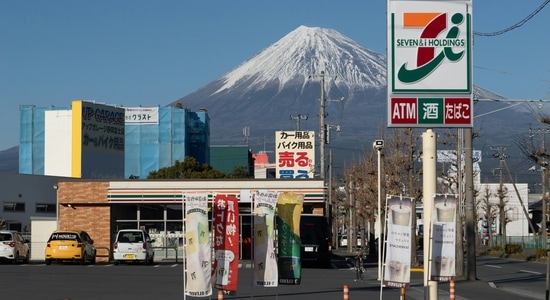
Can responsible travel curb overtourism woes?
8 months ago | 101 Views
"Mass tourism is destroying Spain,” screamed a middle-aged woman, walking down La Rambla in central Barcelona. Just seconds later, the camera caught her firing a water pistol at a group of people dining on a porch. On July 6, more than 2,800 anti-tourism protesters took to the streets of the capital to participate in an “anti-tourism” protest spearheaded by the Assemblea de Barris pel Decreixement Turístic (ABDT). Unfortunately, demonstrations like these to ‘save the city’ from a long-standing housing crisis exacerbated by over-tourism have become a recurrent event—with slim to almost no hope for a resolution in sight.
And Spain is not alone. Several thousand visitors from around the world shuffle through European cities, practice ‘Insta tourism’, and overstay in sensitive regions every day. The compounding impact of such practices has recently led to an outcry for policies and restrictions that will result in tourists paying for the privilege, with proceeds from tourist taxes and banned activities going towards the upkeep and restoration of these destinations. Here’s a roundup of how travel has changed to these destinations, and everything the locals and visitors can do to give back.
Amsterdam, The Netherlands
Last year, Deputy Mayor Sofyan Mbarki’s vision to free Amsterdam from the “nuisance” of travellers resulted in a campaign that literally and figuratively wanted people to “Stay Away”. Last week, the Dutch capital’s council one-upped the previous strategy by limiting the cruises on its harbour to just 100 in 2026, down from 19, and a plan to eventually ban them by 2026. “Sea cruises are polluting and cause crowds and emissions in the city,” the council said in its release. “We want Amsterdam to be clean, livable, and sustainable.” The two primary causes that led to the crackdown—the surge in footfall from 12.6 million in 2019 to 15.1 million in 2023 and continued pollution of the canals.
What you can do: Swap out your cruise reservation for a ride on the Plastic Whaleboat (plasticwhale.com), a volunteer initiative combining a classic canal tour with the collection of plastic waste and litter from the waters of the Amsterdam Canal (Rs.4,475). Less on time, hop on Pedalos or canal bikes, which don’t pollute and let you sail at your own pace.
Copenhagen, Denmark
Channelling all the negatives of over-tourism into a positive initiative to boost hope, Copenhagen’s answer to reducing the environmental impact of tourists is a catchy reward programme. The CopenPay (visitcopenhagen.com/copenpay) initiative running from July 15 to August 11 will gift visitors a free lunch or a cup of coffee to a kayak tour or even a free entrance to a museum in exchange for sustainable behaviours, for example, biking instead of driving. “It is an experimental and a small step towards creating a new mindset amongst travellers,” said Mikkel Aarø-Hansen, CEO of Wonderful Copenhagen, the city’s official tourism organisation, in a statement. 24 attractions will reward tourists’ climate-friendly actions. “Reward-based initiatives like the ones in Copenhagen can definitely have a positive impact.
Primarily, these initiatives can drive behavioural change. However, there are challenges to consider. The impact of these initiatives might be limited if they are not part of a larger, integrated strategy that includes regulations, infrastructure improvements, and broader sustainable tourism policies,” says Mr Navneet Nagpal, Principal Consultant and Director, Spectra Hospitality Services.
What you can do: Head to the Copenhagen Surf School (copenhagensurfschool.dk) where you can grab a free lunch by helping with a 30-minute beach cleanup following their surf lesson. Or you can help keep Copenhagen's largest park free of litter by joining Sparta Athletics & Running for free coffee and pastries.
Switzerland
“Prevention is better than cure” is the idiom that best describes how the mountainous Central European country is planning to curb its over-tourism woes. When Lake Brienz experienced a surge in footfall from Asian tourists last year after the South Korean Netflix series ‘Crash Landing on You’ gained mass popularity, the village decided to impose a five Swiss francs fee (Rs. 466). In 2024, in a precautionary campaign, Switzerland Tourism will partner with tour operators to offer packages off the beaten track, like hiking trails and electric bike tours at the luxury winter ski resort of Davos-Klosters. The summer season will also see extended activities that’ll lure tourists into the autumn season, helping spread out the pedestrian flow.
What you can do: Visit the Switzerland Tourism website (switzerlandtravelcentre.com) and choose from 54 hotels to book your stay with the Swisstainable sustainability program which also offers a 33% discount on public transport. Swerve around popular locales to visit Car-free regions like Blatten-Belalp, Mürren and more.
Barcelona, Spain
While the entire country is facing a burgeoning wave of tourism crisis, Barcelona being the country’s most visited city has taken the most heat. In response to the high foot traffic—and recent protests—visitors will now pay €4 (Rs. 364) to the city on top of the regional tourist tax. On top of the increased taxation, Barcelona’s mayor Jaume Collboni has announced a plan to phase out all short-term rentals by 2028 and reduce the number of tourist apartments in the city.
What you can do: First and foremost, it is advisable to avoid Airbnbs or housing in local neighbourhoods to avoid adding to the housing crisis and opt for Catalan-owned stays like Catalan-owned properties like Hotel Brummell, Casa Bonay or Casa Filomena. Since Barcelona is the first urban destination to obtain Biosphere certification, you can book your trip with tour operators who put sustainability first (biospheresustainable.com).
Mount Fuji, Japan
Look up Mount Fuji on any social media platform and a winning shot of the country’s tallest peak seamlessly aligned with the blue branding of Lawson, a local Japanese store franchise, is impossible to miss. But the uncontrollable interest of travellers, especially in photographing and replicating the same shot, had massively disrupted the resort town of Fujikawaguchiko, where incidents of littering and jaywalking quickly gained momentum. Just recently, the authorities built a 20-meter coverup using a black mesh net to block the view along the sidewalk, in a bold and unprecedented step. Those hiking Mount Fuji's Yoshida Trail (even to photograph) will also pay a new hiking fee of 2,000 yen ( ₹1,076) and there will be a cap of 4,000 during the climbing season from July 1 to Sept. 10.
What you can do: Skip the geotagging on social media and practice mindful etiquette when venturing out to photograph people and places in Japan. Instead of Googling to plan the itinerary, switch to Sustabi (sustabi.com), a sustainable search engine for hotels, restaurants and activities that give back to the locals.
Read Also: top natural phenomena that are a must for your travel bucket list.




















